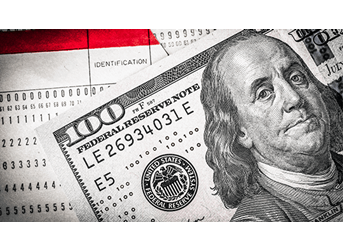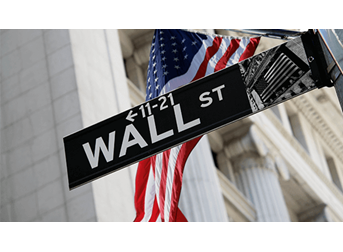Indigofera Case Study

Launching and developing international fashion brands, Indigofera builds longstanding successful relationships with both clients and retailers, offering expertise in sourcing, manufacture, sales, client service and logistics
6 minute readWith a heavy influence from his parents, and Cypriot grandmother who had 120 people working in her clothing factory in Aldgate, fashion was always in Indigofera’s owner Nick Stavrakakis’s blood. We caught up with Nick to discuss the current geopolitical climate caused by Brexit and what that means for businesses like his in Britain…
What was the impact of Brexit on your business?
Brexit hit us really hard, and it’s the only time in our history that we’ve made a loss. Everyone thought Brexit wouldn’t happen but it was in the back of my mind, unfortunately it was too late to mitigate it. At the time we were only able to hedge half, as we suddenly had put big deposits down to book currency forward. So we took the initial hit in autumn 2016 and started to reach out to our suppliers and asked them to meet us in the middle with pricing and discounts to help us keep prices from shooting up. Luckily, by winter all our suppliers helped out and a happy medium was found. Going forward we book as much as we can without any deposits required. Moneycorp helped us get through the most volatile period and now as soon as we need to hedge we get info from our dealers, wait for the right time and book at the highest peaks for that short period.
Are businesses aware of how currency fluctuations can affect them?
I don’t think many people realise how much currency fluctuations can affect businesses, for us every point change is potentially £15,000 profit or loss. It’s also easy to get caught up in a deal, by getting greedy or waiting too long – I always just look at the bigger picture when I’m booking our currency. We don't want any loses. If we can book with an upside then that's good timing, but we essentially make sure the currency does not go below what we are costing our products at. No more brexit scenarios. We stay loyal to the P&L and avoid any unnecessary risks and losses. Operationally we make a strong margin through hard work and running a tight ship and we don’t want any of that being eroded. In hindsight we should have locked in earlier before Brexit to try and negate an impact, nut everyone we had spoken to leading upto the vote was certain the vote would go remain.
How are you preparing for the Britain’s exit out of the EU?
Now we know we are leaving the EU we have taken measures here to prepare and even look for opportunities. We have fully bonded our warehouses, so we don’t have to pay VAT and duty upfront when goods now will need to come in and out from the EU. Customs performed an audit on our IT system and procedures to ensure our accuracy and reporting was upto scratch. This now allows us to have a better cash flow when we eventually leave properly.
We have also set up our warehouse as a logistics company. Many small companies will struggle with the paperwork and potential legislative changes with Brexit, so being organised in this area will put us in a strong position to help our clients and suppliers carry on trading between the EU and the UK as painlessly as possible. With the customs union still being debated, hedging as much as possible is wise to avoid price fluctuations. It’s still volatile and hard to know what will happen in the short run until we leave.
With Brexit, what risks and opportunities are there for your business?
With unity there is strength and together as a bloc Europe has more leverage against bigger countries like China and the US to compete. We already deal with rest of the world regardless of whether we are in or out. In our business, the UK has been America’s stepping stone into Europe for a while, so it could have an impact for us to launch US brands into the EU. I am hoping our exit will influence the EU take a hard look at what is fundamentally wrong with the union and get the EU to create good reform for the rest of its members to help foster better trade relations and encourage unity again even with our being out.
Our main business is to represent brands across Europe so we are concerned how Brexit may make a difference to our relationships. We are still the sole distributor across Europe for a number of brands from Australia and America, and that won’t change for now. We are still in close proximity to Europe, so if we can get ourselves organise to work within the new framework we can still make this happen. We are quietly confident we can overcome most obstacles Brexit will throw at us.
There is a concern that after Brexit will create a labour shortage in the warehousing / logistics sector. But I believe we will find efficiencies through IT and procedures to help us get through this. Through necessity we have swapped out agency staff to full time workers who are more productive per person per hour in our warehouse. New KPI’s in place, new procedures, and improvements in IT the current staff have more ownership, security, motivation and loyalty. With every door that closes one opens.
We represent a number of British brands, and people really buy into the ‘Made in Britain’ label. Unfortunately we just don’t have the infrastructure in this country to compete. In Italy they’ll have plenty of suppliers in the country for zips, buttons, etc. In the UK all these elements typically have to be made elsewhere in the world and then shipped in making it a much more costly and slower process.

